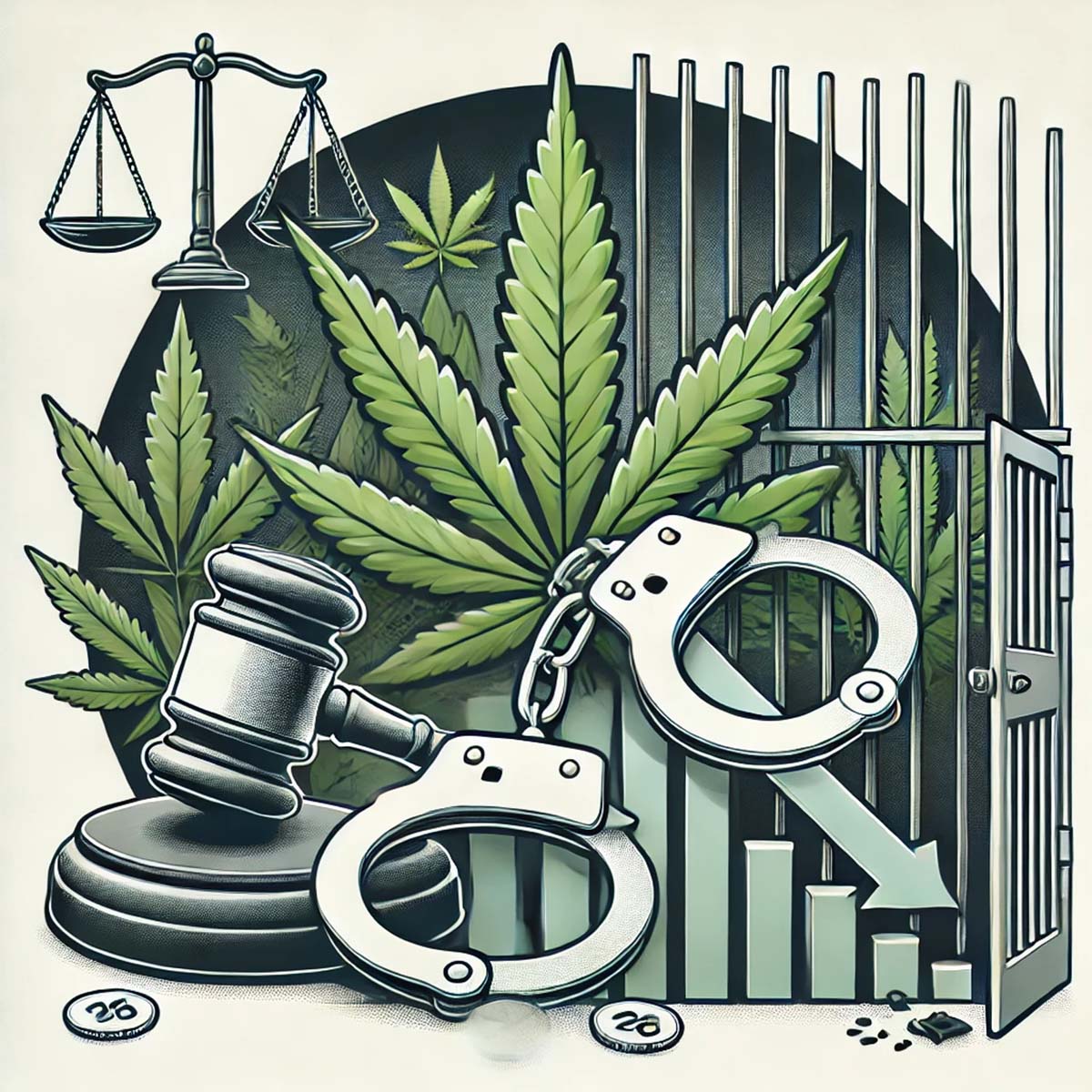Cannabis legalization has been a topic of significant debate and change in many parts of the world in recent years. One common concern among opponents of legalization has been its potential impact on crime rates. Let’s delve into the complex relationship between cannabis legalization and crime to provide a nuanced understanding of the issue.
Reduction in Cannabis-Related Crimes The most direct effect of cannabis legalization on crime rates is a significant reduction in cannabis-related offenses. Prior to legalization, many individuals faced criminal charges for possession, distribution, or cultivation of cannabis. With the legal market in place, these crimes have largely diminished, leading to a decrease in arrests and convictions for cannabis-related offenses.
Shift in Law Enforcement Priorities As cannabis-related crimes decrease, law enforcement agencies can reallocate resources and focus on more pressing issues such as violent crimes, property crimes, and drug offenses involving more dangerous substances. This shift in priorities can contribute to a safer community by directing law enforcement efforts toward crimes with more significant societal impact.
No Clear Increase in Other Crimes One concern raised by opponents of cannabis legalization was the potential for an increase in other types of crime, such as property crime or violent crime. However, research and data have shown that there is no clear evidence of a substantial increase in these types of crimes in states or countries where cannabis has been legalized. In fact, some areas have even seen a decrease in certain categories of crime.
Economic Benefits and Crime Reduction Cannabis legalization can bring economic benefits to regions through taxation and job creation. These financial gains can be used to fund social programs and initiatives aimed at reducing crime and addressing its root causes, such as poverty, lack of education, and substance abuse.
Potential for Reduced Black Market Activity The legal cannabis market provides a regulated and controlled environment for the production and distribution of cannabis. This can reduce the presence and influence of the black market, which is often associated with criminal activity. By shifting consumers toward legal and regulated sources, there is a potential reduction in related crimes.
Challenges Remain While cannabis legalization has demonstrated positive effects on crime rates, challenges remain. Some issues include:
- Cannabis-Impaired Driving: The need for effective regulations and enforcement to address driving under the influence of cannabis.
- Youth Access: Strategies to prevent youth access and use need to be robust.
- Impact on Marginalized Communities: Ensuring that cannabis legalization doesn’t perpetuate existing social inequalities.
Final Thoughts The impact of cannabis legalization on crime rates is multifaceted and region-specific. While it has led to a significant reduction in cannabis-related offenses and a shift in law enforcement priorities, other factors such as the potential for increased youth access or impaired driving require careful consideration and proactive measures. Overall, cannabis legalization has not been shown to result in significant increases in other types of crime, and it offers opportunities to redirect law enforcement resources, reduce the black market, and contribute to the local economy. Responsible regulation and a continued focus on addressing challenges are essential as more regions consider cannabis legalization.



